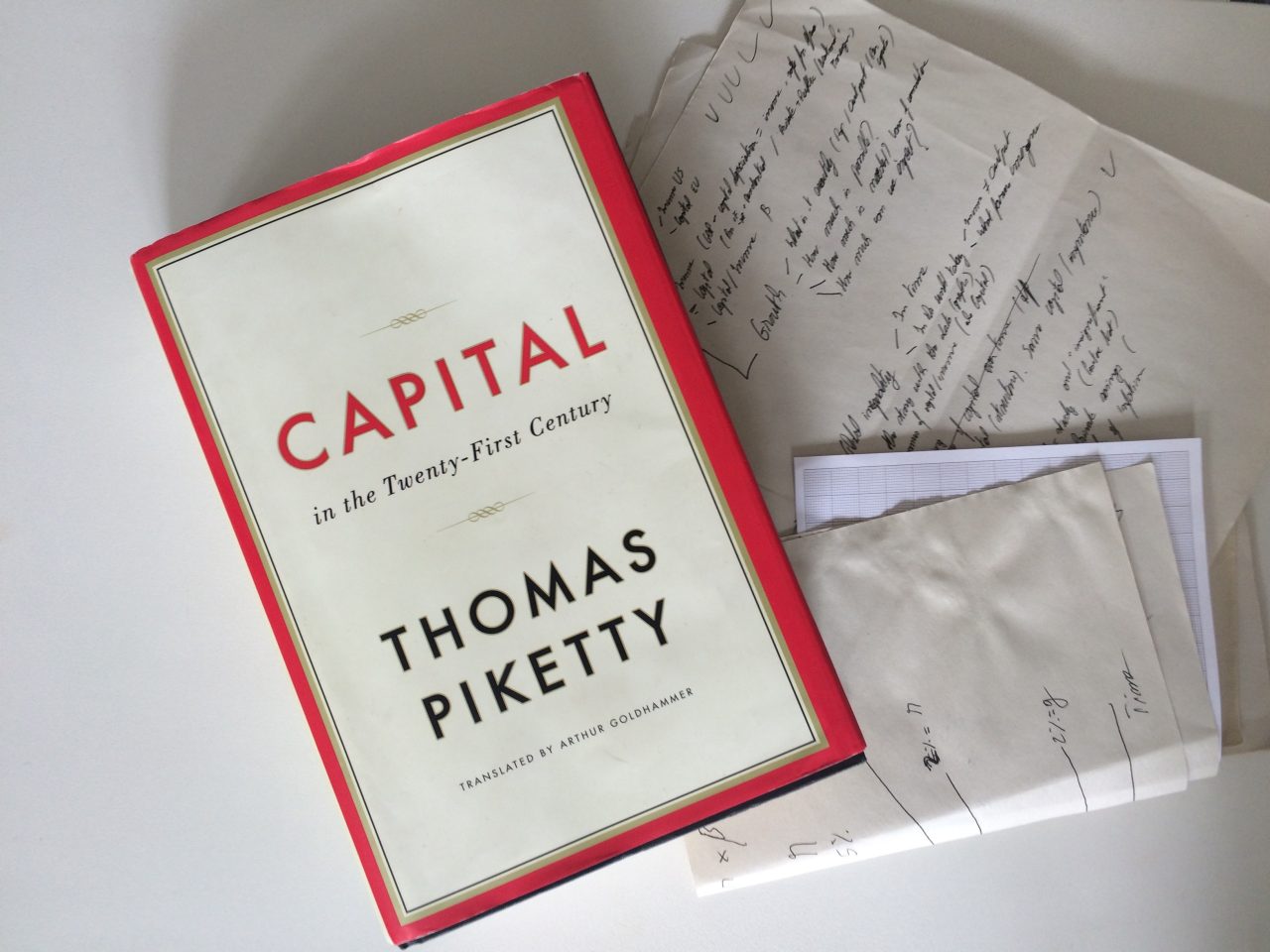Contenidos
Capital in the twenty first century
capital in the 21st century documentary
The book argues that the world today is moving back towards “patrimonial capitalism,” in which much of the economy is dominated by inherited wealth: the power of this economic class is increasing, threatening to create an oligarchy.[4] Piketty cites novels by Honoré de Balzac, Jane Austen and Henry James to describe the rigid class structure based on accumulated capital that existed in England and France in the early 19th century.
Piketty considers it necessary to reduce economic inequality for which he proposes a progressive flat tax on wealth of up to 2% combined with a progressive income tax of up to 80%; although he acknowledges that such a tax “would be politically impossible.”[5]
Without tax adjustment, Piketty predicts a world of low economic growth and extreme inequality. His data show that over long periods of time, the average return on investment exceeds productivity-based income by a wide margin.[7] He rejects the idea that productivity gains resulting from technological advances can be used to return sustained economic growth. We should not expect that a “more just and rational order” will emerge based on “vagaries of technology” and that the return on investment can be increased when technology can be substituted for people.[5]
prophet of innovation: joseph sc
Thomas Piketty, a researcher at the Paris School of Economics, published in 2013, Capital in the 21st Century. It is a major investigation into the process of capital accumulation. Piketty denounces the constant accumulation of capital and the consequent increase in inequalities in developed countries, which shows that such concentration and inequalities are not exclusive to emerging economies, especially Mexico, where polarization and inequality are evident.
Thomas Piketty, researcher at the Paris School of Economics, published in 2013, Capital in the 21st Century. It is a great research on the process of capital accumulation. Piketty denounces the constant accumulation of capital and the consequent increase in inequalities in developed countries, which shows that such concentration and inequalities are not exclusive to emerging economies, especially Mexico, where polarization and inequality are evident.
freaks of fortune: the emer
The book argues that the world today is moving back towards “patrimonial capitalism,” in which much of the economy is dominated by inherited wealth: the power of this economic class is increasing, threatening to create an oligarchy.[4] Piketty cites novels by Honoré de Balzac, Jane Austen and Henry James to describe the rigid class structure based on accumulated capital that existed in England and France in the early 19th century.
Piketty considers it necessary to reduce economic inequality for which he proposes a progressive flat tax on wealth of up to 2% combined with a progressive income tax of up to 80%; although he acknowledges that such a tax “would be politically impossible.”[5]
Without tax adjustment, Piketty predicts a world of low economic growth and extreme inequality. His data show that over long periods of time, the average return on investment exceeds productivity-based income by a wide margin.[7] He rejects the idea that productivity gains resulting from technological advances can be used to return sustained economic growth. We should not expect that a “more just and rational order” will emerge based on “vagaries of technology” and that the return on investment can be increased when technology can be substituted for people.[5]
21st century capitalism
The book argues that the world today is moving back towards “patrimonial capitalism,” in which much of the economy is dominated by inherited wealth: the power of this economic class is increasing, threatening to create an oligarchy.[4] Piketty cites novels by Honoré de Balzac, Jane Austen and Henry James to describe the rigid class structure based on accumulated capital that existed in England and France in the early 19th century.
Piketty considers it necessary to reduce economic inequality for which he proposes a progressive flat tax on wealth of up to 2% combined with a progressive income tax of up to 80%; although he acknowledges that such a tax “would be politically impossible.”[5]
Without tax adjustment, Piketty predicts a world of low economic growth and extreme inequality. His data show that over long periods of time, the average return on investment exceeds productivity-based income by a wide margin.[7] He rejects the idea that productivity gains resulting from technological advances can be used to return sustained economic growth. We should not expect that a “more just and rational order” will emerge based on “vagaries of technology” and that the return on investment can be increased when technology can be substituted for people.[5]
